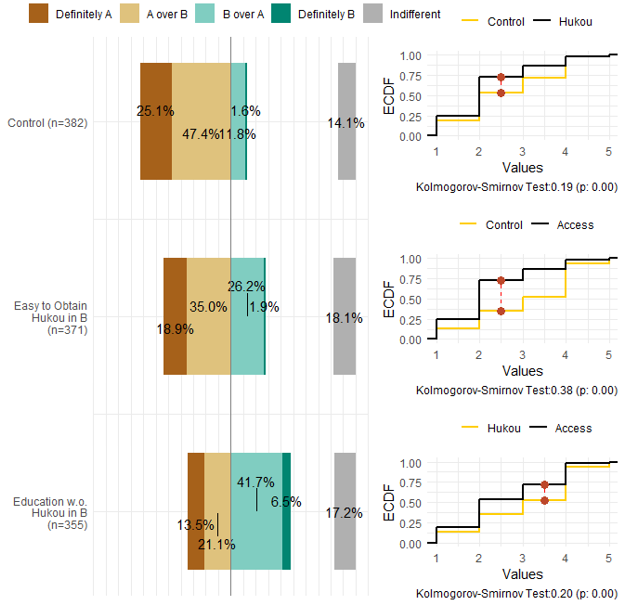Political Response
Political sociology and political psychology

Disproportionate scholarly attention in the studies of the government-mass relationship focused on the government’s responses (motivations and means) to public demands. Less research explores what happens next. However, in real politics, the governments often fall into the curse that what they do mismatches what the public wants. I unbox this puzzle by investigating how the public responds to the government’s response. Several focused questions include: what do the masses learn from the government’s decisions and actions? What do they often miss and why? And how do their cognition of the government alter their political preferences and later political behaviors?
Selected Publications
Hu, Yue, and Elise Pizzi. 2022. “The Role of Language Policy in Migration Decisions.” China: An International Journal: Forthcoming.
Tang, Wenfang, and Yue Hu. 2022. “Detecting Grassroots Bribery and its Sources in China: A Survey Experimental Approach” Journal of Contemporary China: Online. (Pre-print available here)
Tai, ‘Cassandra’ Yuehong, Yue Hu, and Frederick Solt. 2022. “Democracy, Public Support, and Measurement Uncertainty.” American Political Science Review: First View. (Pre-print available here)
Pizzi, Elise, and Yue Hu. 2021. “Does Governmental Policy Shape Migration Decisions?The Case of China’s Hukou System.” Modern China: Online. (Pre-print available here)
Claypool, Vicki Hesli, William Reisinger, Marina Zaloznaya, Yue Hu, and Jenny Juehring. 2018. “Tsar Putin and the ‘Corruption’ Thorn in His Side: The Demobilization of Votes in a Competitive Authoritarian Regime.” Electoral Studies 54: 182–204. (Pre-print available here)
季程远和胡悦: 《经济发展与纵向获得感》, 《公共行政评论》2022年 86(2)期,第4–21页.
- Posted on:
- July 29, 2021
- Length:
- 2 minute read, 235 words
- Categories:
- political opinions identity public policy
- See Also: